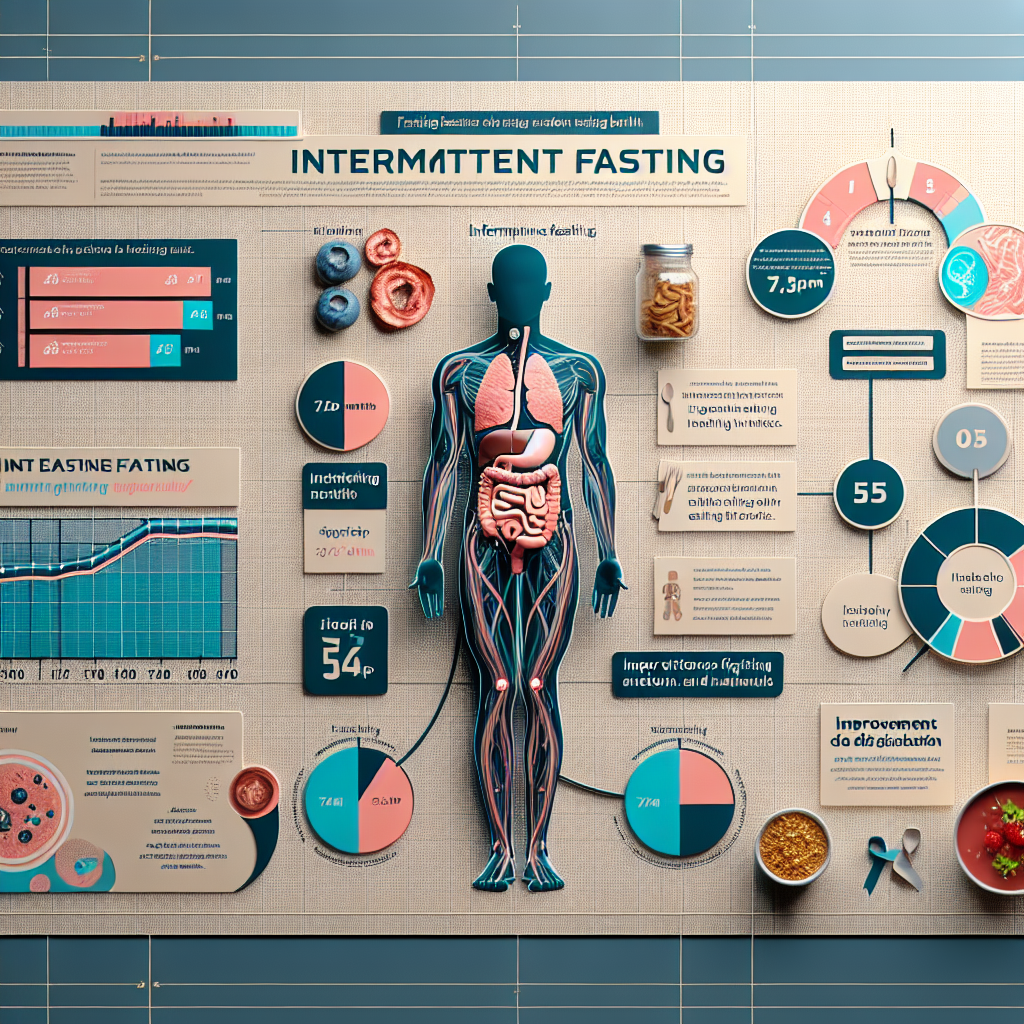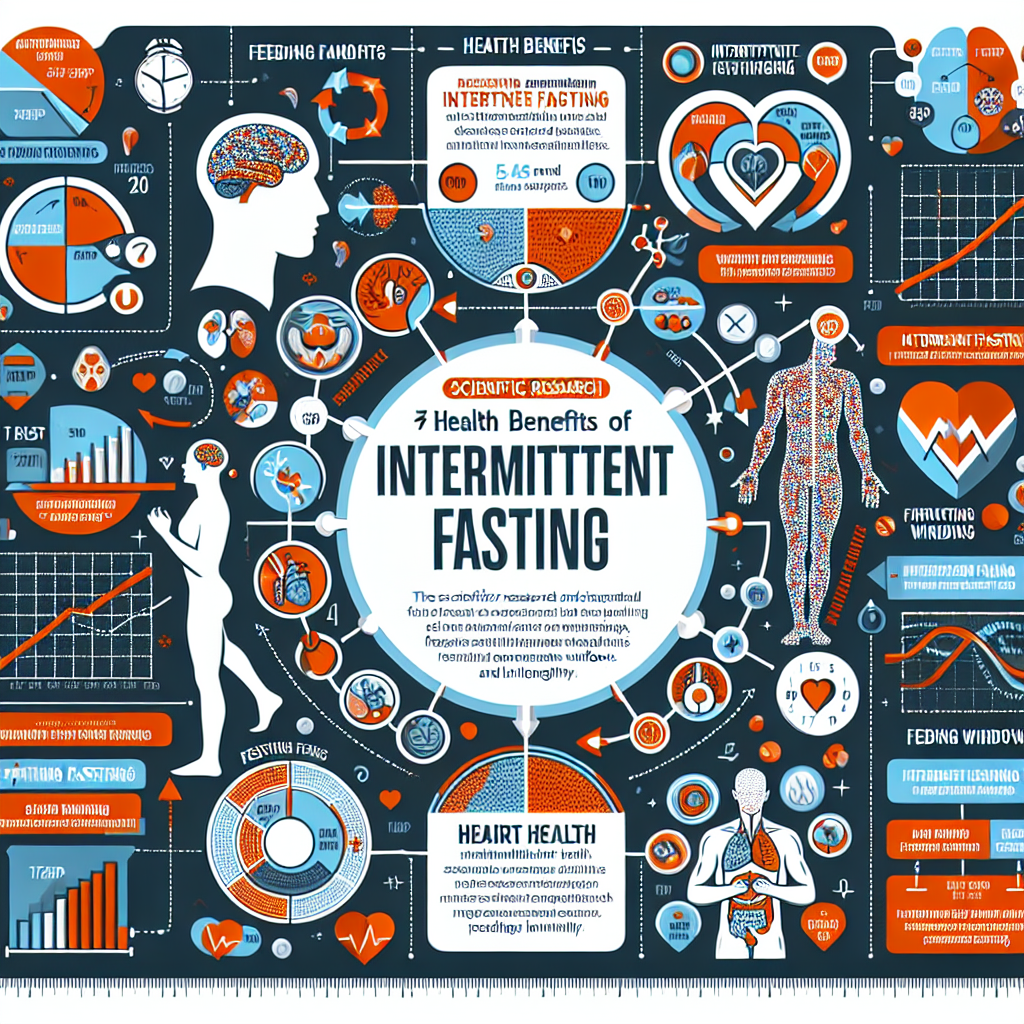Intermittent Fasting: Latest Research and Health Benefits

Discover the latest research and health benefits of Intermittent Fasting. Uncover how this eating pattern can revolutionize your health and wellness. Don’t wait, start your journey to a healthier lifestyle today. Learn more.
Exploring the Latest Scientific Findings on Intermittent Fasting
Intermittent fasting, a dietary regimen that cycles between periods of eating and fasting, has been gaining popularity in recent years. This surge in interest is not without reason, as a growing body of scientific research suggests that intermittent fasting may offer a host of health benefits.
One of the most compelling findings in recent research is the potential of intermittent fasting to improve metabolic health. A study published in the New England Journal of Medicine suggests that intermittent fasting can enhance the body’s resistance to stress, optimize energy metabolism, and bolster cellular health. The researchers found that fasting triggers a metabolic switch from glucose-based to ketone-based energy, which can lead to improved glucose regulation, increased stress resistance, and reduced inflammation.
Another significant area of research is the potential impact of intermittent fasting on weight loss and obesity. A study published in the American Journal of Clinical Nutrition found that participants who followed an intermittent fasting regimen lost weight and improved their metabolic health. The researchers concluded that intermittent fasting could be a viable strategy for weight loss and the prevention of metabolic diseases like diabetes.
Intermittent fasting may also have implications for brain health. A review published in the journal Ageing Research Reviews suggests that intermittent fasting can enhance cognitive function and protect against neurodegenerative diseases. The researchers found that fasting periods stimulate the production of a protein called brain-derived neurotrophic factor (BDNF), which promotes the health and survival of neurons. This could potentially delay the onset of Alzheimer’s disease and other forms of dementia.
Moreover, intermittent fasting may also have potential benefits for cardiovascular health. A study published in the journal Nutrition Reviews found that intermittent fasting can reduce blood pressure, cholesterol levels, and inflammatory markers, all of which are risk factors for heart disease. The researchers concluded that intermittent fasting could be a promising strategy for improving cardiovascular health.
However, it’s important to note that while the research on intermittent fasting is promising, it’s still in its early stages. Many of the studies have been conducted on animals or small groups of people, and more large-scale, long-term studies are needed to fully understand the effects of intermittent fasting on human health.
Furthermore, intermittent fasting is not suitable for everyone. People with certain medical conditions, such as diabetes or eating disorders, pregnant or breastfeeding women, and those who are underweight should not attempt intermittent fasting without medical supervision. It’s always important to consult with a healthcare provider before starting any new dietary regimen.
In conclusion, the latest scientific research suggests that intermittent fasting may offer a range of health benefits, from improved metabolic health to enhanced cognitive function. However, more research is needed to fully understand these effects, and intermittent fasting should be undertaken with caution and under medical supervision. As our understanding of intermittent fasting continues to grow, it’s clear that this dietary regimen has the potential to make a significant impact on public health.
Health Benefits of Intermittent Fasting: A Comprehensive Review

Intermittent fasting, a dietary practice that alternates between periods of eating and fasting, has been gaining popularity in recent years. This surge in interest is not without reason, as a growing body of research suggests that intermittent fasting may offer a host of health benefits.
One of the most significant benefits of intermittent fasting is its potential to aid in weight loss. This is primarily due to the fact that during fasting periods, the body is forced to burn stored fat for energy. A study published in the American Journal of Clinical Nutrition found that intermittent fasting can lead to significant weight loss, with participants losing an average of 2.5% of their body weight over a six-month period.
In addition to weight loss, intermittent fasting may also improve metabolic health. A study published in Cell Metabolism found that intermittent fasting can improve insulin resistance, a key factor in the development of type 2 diabetes. The study also found that intermittent fasting can reduce levels of inflammation, which is linked to a variety of chronic diseases, including heart disease and cancer.
Intermittent fasting may also have benefits for brain health. Research published in the New England Journal of Medicine suggests that intermittent fasting can stimulate a process known as autophagy, where the body cleans out damaged cells, potentially reducing the risk of neurodegenerative diseases like Alzheimer’s and Parkinson’s.
Moreover, intermittent fasting may also have anti-aging effects. A study published in the journal Cell Reports found that intermittent fasting can extend lifespan in mice, and while more research is needed to confirm these effects in humans, the results are promising.
However, it’s important to note that while the research on intermittent fasting is promising, it’s not a one-size-fits-all solution. The effects of intermittent fasting can vary greatly depending on factors such as age, gender, and overall health. For instance, some research suggests that intermittent fasting may not be as beneficial for women as it is for men.
Furthermore, while intermittent fasting can be a powerful tool for weight loss and health improvement, it’s not a substitute for a balanced, nutritious diet. It’s still crucial to consume a variety of nutrient-dense foods during eating periods to ensure the body gets the nutrients it needs.
It’s also worth noting that intermittent fasting is not suitable for everyone. People with certain medical conditions, such as diabetes or eating disorders, should not attempt intermittent fasting without medical supervision. Pregnant women and those who are breastfeeding should also avoid intermittent fasting.
In conclusion, intermittent fasting is a fascinating area of research with potential benefits for weight loss, metabolic health, brain health, and longevity. However, it’s not a magic bullet, and it’s important to approach it with a balanced perspective. As with any dietary change, it’s always best to consult with a healthcare professional before starting intermittent fasting.
The growing body of research on intermittent fasting is certainly exciting, and it’s clear that this dietary practice has the potential to offer significant health benefits. However, as with any health trend, it’s important to approach it with a critical eye and a healthy dose of skepticism. After all, the best diet is the one that you can stick to in the long term, and that makes you feel good both physically and mentally.
Intermittent Fasting: Unveiling the Connection Between Fasting and Improved Health
Intermittent fasting, a dietary regimen that cycles between periods of eating and fasting, has been gaining popularity in recent years. This surge in interest is not without reason, as a growing body of research suggests that intermittent fasting may offer a host of health benefits.
Intermittent fasting is not a diet in the traditional sense, but rather a pattern of eating. It doesn’t specify which foods you should eat, but rather when you should eat them. There are several different intermittent fasting methods, all of which split the day or week into eating periods and fasting periods. The most popular methods include the 16/8 method, the 5:2 diet, and the eat-stop-eat method.
The 16/8 method involves fasting every day for 14-16 hours and restricting your daily eating window to 8-10 hours. During the eating window, you can fit in two, three, or more meals. The 5:2 diet, on the other hand, involves eating normally for five days of the week, while restricting calories to 500-600 on two non-consecutive days of the week. The eat-stop-eat method involves a 24-hour fast once or twice a week.
The science behind intermittent fasting is fascinating. When you fast, several things happen in your body on the cellular and molecular level. For example, your body adjusts hormone levels to make stored body fat more accessible. Your cells also initiate important repair processes and change the expression of genes.
Recent research has shown that intermittent fasting can have powerful benefits for your body and brain. One of the most significant benefits is weight loss, which is a natural side effect of intermittent fasting. This is due to a decrease in calorie intake and an increase in the function of hormones related to weight control.
Intermittent fasting can also reduce insulin resistance, lowering blood sugar by 3-6% and fasting insulin levels by 20-31%, which protects against type 2 diabetes. Furthermore, it has been found to reduce inflammation and oxidative stress, both of which are key drivers of chronic diseases and aging.
Another exciting area of research is the impact of intermittent fasting on brain health. Studies have shown that it can increase the growth of new neurons and protect the brain from damage. It may also increase levels of a brain hormone called brain-derived neurotrophic factor (BDNF), a deficiency of which has been implicated in depression and various other brain problems.
Moreover, intermittent fasting can induce a cellular waste removal process called autophagy. This involves your cells breaking down and metabolizing broken and dysfunctional proteins that build up inside cells over time. Increased autophagy may provide protection against several diseases, including cancer and Alzheimer’s disease.
In conclusion, intermittent fasting is more than just a fad. It’s a lifestyle choice backed by a growing body of scientific evidence. It’s not for everyone, and if you decide to try it, it’s always a good idea to check with your doctor first. But the potential benefits – weight loss, improved metabolic health, reduced inflammation, and improved brain health, to name just a few – make it a compelling option for those seeking to improve their health and wellbeing. As research continues to unveil the connection between fasting and improved health, intermittent fasting is likely to remain a hot topic in the world of health and wellness.